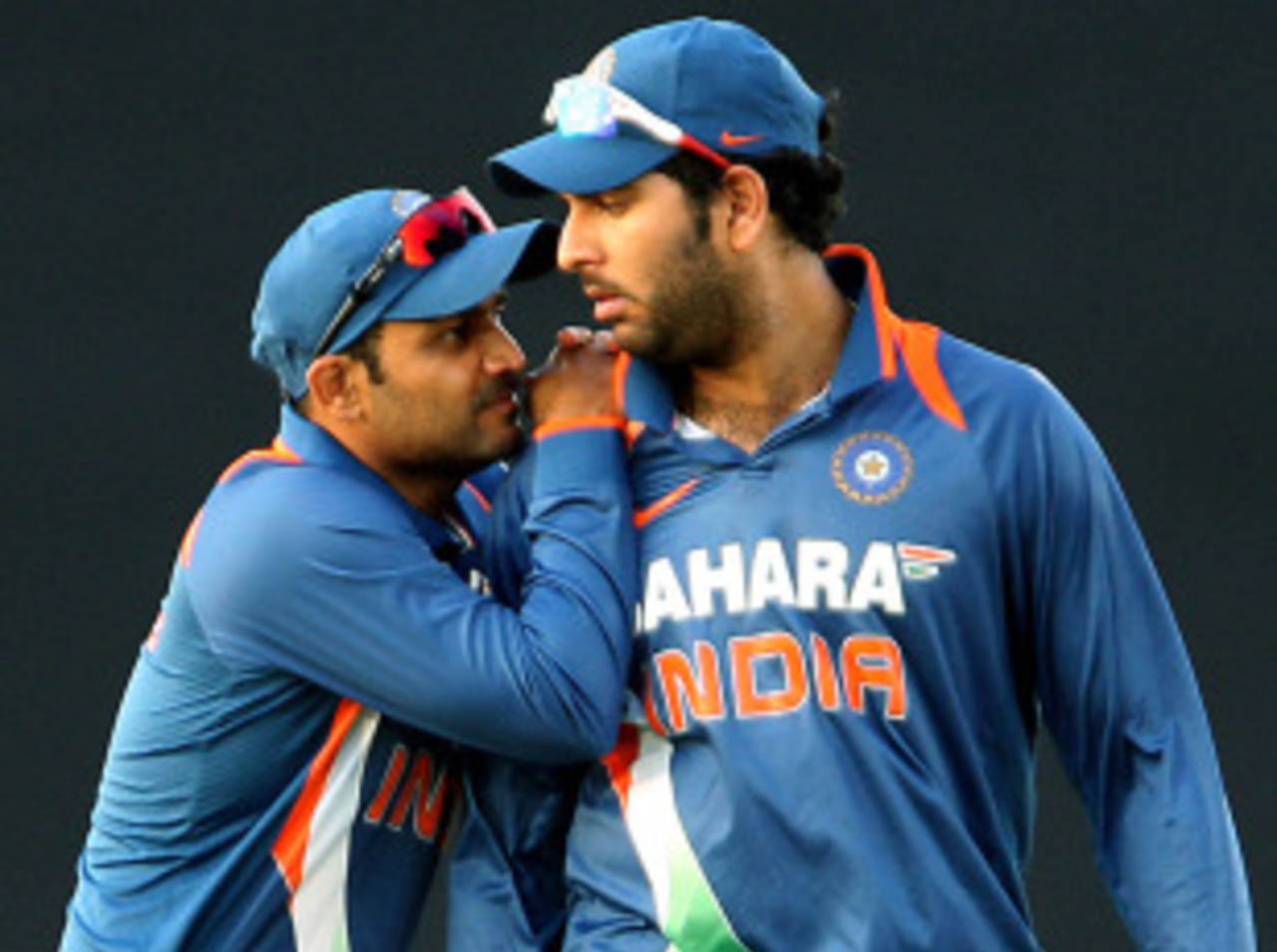For someone whose career as captain was kickstarted somewhat by default, when India's senior players opted out of the inaugural World Twenty20,
MS Dhoni has done fairly well for himself.
Back in 2007, the automatic choice to lead the side ought to have been Virender Sehwag, for he was a fair bit senior to Dhoni and was also playing all three formats. Unfortunately for Sehwag, that year was the poorest of his career till then. Ergo, the responsibility of leading the young Indian team fell into Dhoni's lap.
Dhoni's brand of poker-faced calm captaincy with a penchant for taking risks led India to their first and only World Twenty20 victory. The rest, as they say, is history. He's one of the better captains India has produced - if not the best. In the last five years, he has passed quite a few stern tests with flying colours, yet there have been a crucial few he has failed at.
He's facing one such examination with the start of fourth World Twenty20. Can he regain lost glory in the shortest format of the game, his forte? Since India hosts the world's biggest T20 league, the IPL, it was expected to propel the team's fortunes in the World Twenty20s after the first one, but it hasn't worked out that way. India's below-par performances in the last two World Twenty20s have raised a few questions about the standard of the IPL and the quality of Dhoni's captaincy.
His method of operating in limited-overs cricket has always been to play seven batsmen and four bowlers. While this formula has worked well in ODIs, because the format allows the part-timers to finish their quota in the middle overs without much damage, it tends to backfire in T20 cricket. Every over in a T20 is worth 5% of the bowling innings (as opposed to only 2% in an ODI). In ODIs a side has the time to bounce back from a couple of expensive overs by part-timers, but there's no such luxury in T20 cricket. In T20's short life span, a clear pattern has emerged, where teams with potent bowling attacks tend to do better.
The other problem with playing only four frontline bowlers is that none of them can afford to have an off day. Considering that Zaheer Khan hasn't enjoyed much success in T20, L Balaji is coming back after a very long hiatus, and Irfan Pathan isn't the best option at the death, there is a strong case to reconsider the strategy of playing an extra batsman at No. 7. India's batting is, perhaps, the strongest in the tournament, and the top six batsmen should assume the responsibility of playing out the 20 overs.
If Dhoni indeed decides to play an extra bowler, he will face the dilemma of which batsman to drop from the XI. In a tournament like the World Twenty20, form must take precedence over reputation. Dhoni would either have to get Virat Kohli to open the innings with Gautam Gambhir, or he'll choose between Yuvraj Singh and Rohit Sharma. Going by current form, Yuvraj and Sehwag seem to be the players most likely to be benched.
Yuvraj hasn't got enough hours of batting under his belt in the last ten months, and Sehwag has scored only one half-century in his last 11 T20 internationals. If you play Yuvraj, you've got to treat him as the match-winner of old, who would bat in crunch situations and also bowl two or three overs regularly. If Dhoni is going to ease him into international cricket, it will defeat the very purpose of Yuvraj's inclusion in the team. And if you're going to play Sehwag, he must start batting deep into the innings more regularly. Else, it's better to open with Kohli. These are going to be tough calls, but you have to be ruthless to win a world tournament.
In case Dhoni continues with the same team combination, which he's most likely to do, the team must assume the responsibility of scoring 30 runs above par when they bat first, and be prepared to chase, which they should choose almost every time Dhoni wins the toss.
Once you have the cushion of an extra batsman, in addition to what is already a very strong batting line-up, and two decent allrounders in R Ashwin and Irfan, you must not be talking about the pitch slowing down or leaking a few extra runs in the death overs.
Former India opener Aakash Chopra is the author of Out of the Blue, an account of Rajasthan's 2010-11 Ranji Trophy victory. His website is here and his Twitter feed here
